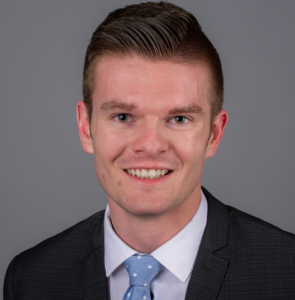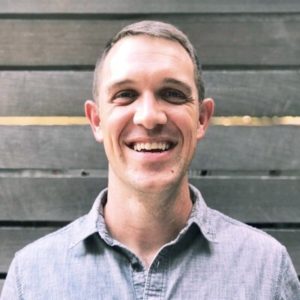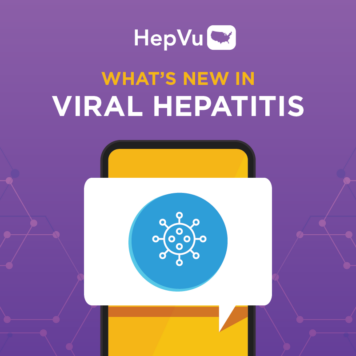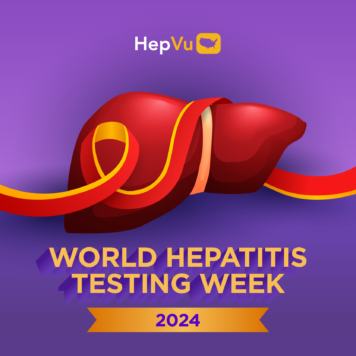
Meet the Vu Fellows
AIDSVu and HepVu are proud to announce the winners of the 2021-2022 inaugural Vu fellowship. We received many wonderful applications, but these awardees stood out for their creative use of Vu data and commitment to furthering HIV, viral hepatitis, and syndemic research.
Dr. Samuel Bunting
 Samuel R. Bunting, MD, MSHA, Department of Psychiatry & Behavioral Neuroscience at The University of Chicago for his project:
Samuel R. Bunting, MD, MSHA, Department of Psychiatry & Behavioral Neuroscience at The University of Chicago for his project:
“Evaluating the Association Between HIV Pre-Exposure Prophylaxis (PrEP) and Rates of Sexually Transmitted Infections and HIV Disparities at the U.S. County-Level”
Dr. Bunting spoke about his project to Vu:
My proposed Vu Fellowship project is a secondary analyses utilizing publicly available data from the CDC and Census Bureau along with the AIDSVu county-level PrEP data to investigate the relationship between PrEP prescriptions and STI rates at the county-level in the U.S. While the trend of rising STI rates in the U.S. pre-dates the FDA approval of PrEP for HIV prevention in 2012, there has been some concern that PrEP use has contributed to an increase in STI rates since its approval. Thus far, investigations into this area have been limited to individual clinics or have focused on large areas of geography which do not allow for the necessary, nuanced understanding of increasing STI rates. The series of analyses I will complete in the Vu Fellowship is intended to be one of the first studies of county-level STI incidence and PrEP use data. Understanding how PrEP has changed the HIV and STI syndemics is critical as PrEP scale-up and modalities continue to expand and to inform policy and clinical guidance to address rising STI rates in the U.S.
I am most excited for this fellowship as an opportunity to continue working with the AIDSVu data! I have used the publicly available data to guide my previous work in educating clinicians and trainees about PrEP for HIV prevention. The Vu Fellowship is an exciting opportunity to build my data analysis skill set using the large amount of data available from AIDSVu with the mentorship and guidance of the AIDSVu team.
Dr. Lorraine Dean

Lorraine Dean, ScD, Johns Hopkins Bloomberg School of Public Health for her project:
“Examining the Geography of HIV PrEP Reversals, New HIV Cases, and Social Determinants”
Dr. Dean spoke about her project to Vu:
Daily oral pre-exposure prophylaxis (PrEP) can reduce the risk of HIV infection by greater than 99% when used as directed, leading to fewer new HIV cases, but our initial studies show that nearly 1 in 5 patients do not pick up their first prescription. I’m excited to extend this initial work in an AIDSVu project that examines “PrEP pharmacy reversals” or the extent to which patients fail to pick up their first PrEP prescription, at which point it is returned to the pharmacy shelf. This project will explore where in the U.S. reversals occur, and what social determinants are at work in those places. My hope is that this work ultimately helps us to better focus efforts to get patients to start and stay on PrEP.
Dr. Eric Hall
 Eric Hall, PhD, MPH, Assistant Professor of Epidemiology Oregon Health & Science University for his project:
Eric Hall, PhD, MPH, Assistant Professor of Epidemiology Oregon Health & Science University for his project:
“Categorizing the geographic distribution of Hepatitis C prevalence and injection-involved overdose mortality”
Dr. Hall spoke about his project to Vu:
In the United States, there has been an increase of Hepatitis C virus as a result of increased injection drug uses that stems from the opioid epidemic. However, our understanding of the geographic differences in HCV incidence and risk of HCV infection is limited and inconsistent. Through this fellowship, I plan to estimate the number and rate of state-level injection-involved overdose deaths as a proxy to identify areas of injecting behavior.
I am excited to have this opportunity to meet and collaborate with a wide variety of experts on the HepVu team and in the community of public health professionals that aspire to eliminate viral hepatitis.
Dr. Hui (Henry) Luan
 Hui (Henry) Luan, PhD, MSc, Department of Geography, University of Oregon, for his project:
Hui (Henry) Luan, PhD, MSc, Department of Geography, University of Oregon, for his project:
“New HIV diagnosis hotspots and their associations with social determinants of health across race/ethnicity and geography: a Bayesian multivariate spatial analysis of publicly available, censored data”
Dr. Luan spoke about his project to Vu:
The proposed project detects hotspots of new HIV diagnosis at the ZIP Code-level (i.e., ZIP Codes with elevated risks) in Black, White, and Hispanic populations across six cities in the United States, including New York City, Philadelphia, Hartford, Huston, Atlanta, and Miami-Dade. It also examines whether social determinants of health such as socioeconomic deprivation, income inequality, percentage of the population without health insurance, and residential segregation significantly impact new HIV diagnosis, and whether and how the impacts vary across races/ethnicities and geographies.
This fellowship allows me to examine the longstanding trend of racial disparities in HIV infections, but from the perspective of a geographer and a spatial data analyst. I am most excited about the opportunity to use my expertise (Geographic Information Science and spatial statistics) to analyze the openly accessible HIV datasets from AIDSVu and disseminate findings to a wide variety of audiences through the platform as well as scholarly journals and conferences. Findings from my proposed project, which is inherently interdisciplinary, could have implications for different disciplines on topics including but not limited to healthcare resource allocation and replicability/reproducibility in geospatial health studies.
More information about the 2022-2023 Vu fellowship will be released in the Spring.



